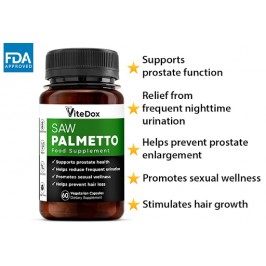MEN'S MENOPAUSE AND WHAT HAPPENS DURING THAT PERIOD

Menopause is not a phenomenon that only affects women. Most men start losing testosterone as early as 30-35 years of age, but menopausal symptoms usually do not appear until you are 40 years old.
The fact that men also experience menopause is therefore a real phenomenon.
Perhaps you have experienced more mood swings and may feel irritable.
Male menopause is also known as andropause. Androgens is a generic term for the male hormone testosterone.
TESTOSTERONE LEVELS FALL
All of these menopausal symptoms are related to decreased testosterone levels. Unfortunately, many men are too bad at talking about what's going on in their bodies.
It is not uncommon for testosterone levels to drop by about 1 percent per year from the age of 30-40. When a man turns 70, the testosterone stores in his body often halve.
Low testosterone levels often affect many areas.
It is also possible to do a blood test to measure the amount of testosterone in the body. Normal testosterone levels for men are between 200 and 1,200 nanograms per deciliter.
MEN VS. LADIES
Menopause is quite different between women and men. Menopause in women is about the cessation of ovulation and therefore hormone production. This happens in a relatively short time.
Like men, women can also experience a decreased desire during menopause. In addition, research suggests that more women experience depression than men.

Decreased passion and lack of desire are common symptoms of menopause.
Unlike women, men are seen to have a steady decline in testosterone over several years. Therefore, menopausal men usually have gradual symptoms.
A condition in which the amount of testosterone decreases gradually is called hypogonadism. This is a condition characterized by decreased production of the hormone testosterone.
WHAT HAPPENS TO THE PROSTATE?
Although testosterone levels decline with age, it is not uncommon for the prostate to grow and enlarge. In your twenties, the prostate gland is the size of a small walnut and weighs barely more than 20 grams. It is often seen that the prostate gland has grown as big as an apricot by the time you reach the age of 40.
This is basically a completely harmless mode. It is simply caused by an increase in the amount of prostate tissue and is called benign prostatic hyperplasia (BHP).
Typically, 25% of all men between the ages of 50 and 60 experience BHP symptoms. Among men over 60, it is common in 50 percent of men.
But over time, an enlarged prostate can make it difficult to urinate.
ENLARGED PROSTATE AND URINATION PROBLEMS
If the prostate becomes enlarged, you may see two types of urination problems:
Urine retention problems
Withdrawal symptoms
If you have urinary retention problems, you may notice a sudden and strong need to urinate. You need to go to the toilet more often and urinate in small amounts. For some, it can lead to urinary incontinence.
Voiding symptoms, on the other hand, mean that starting to urinate is difficult. You notice a weaker stream of urine and you may generally feel that the bladder is not emptying properly.
This last problem can increase pressure and discomfort in the bladder.
THE FIRST SIGN OF CHANGING YEARS
How do you know for sure if you are experiencing male menopause?
Usually the first thing you notice is that you gain weight. You may notice that the fat settles around the stomach and that it is no longer as easy to get rid of this with exercise.
Another thing is that building muscle can become more difficult . Many people also tend to experience hair loss as a visible sign of andropause.
WHAT CAN YOU DO YOURSELF?
Remember, there are many things you can do on your own to deal with menopause symptoms. Talking to a doctor is one thing. But you can also take some steps yourself:
Ensure regular exercise. It is good for both mood and improves the quality of sleep.
Make healthy lifestyle choices. Eat a little healthier and do strength training during the week to maintain muscle mass.
Take care of your prostate. For example, you can take a dietary supplement containing saw palmetto, which can help reduce the damage to prostate cells and tissues.
WHAT HELPS AN ENLARGED PROSTATE?
Fortunately, there are several measures that can help a benign enlarged prostate:
Do not drink in the evening just before going to bed
Avoid drinking a lot in a short time
Reduce alcohol and caffeine consumption
Take a supplement to help maintain a healthy prostate
SAW PALMETTO AND THE PROSTATE
Vitedox Saw Palmetto is formulated with extract from saw palmetto berries - the most potent part of the natural, herbal plant. This prostate formula is a natural way for men to support their overall health. First, by supporting the prostate and bladder. Second, by sleeping through the night - no need to make multiple trips to urinate. And third, by regulating testosterone levels and boosting performance in bed.
You can do a lot to maintain the normal functioning of your prostate throughout your life. A very simple solution is to order Vitedox Saw Palmetto.
.jpg)



